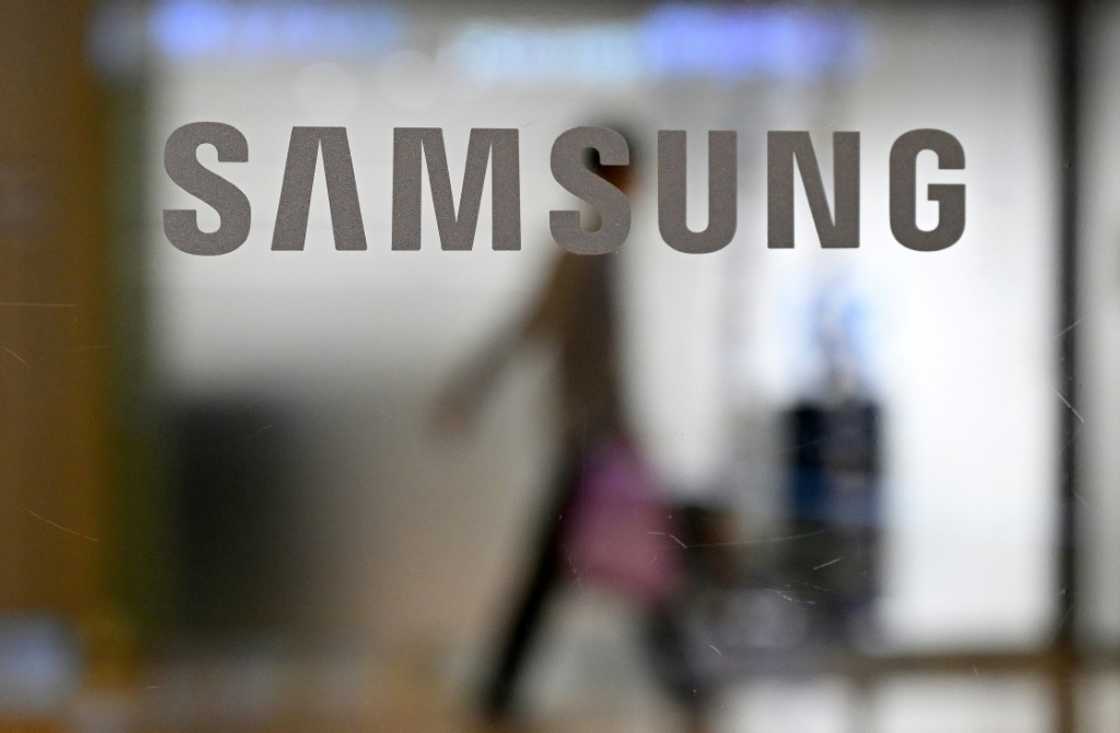Samsung Electronics says Q3 operating profits down 77.57%

Source: AFP
South Korea's Samsung Electronics said Tuesday that its operating profits for the July to September period were down 77.57 percent from the year before, even as new smartphone releases boosted revenue.
The company, which is one of the world's largest makers of electronic chips, announced third-quarter operating profits of "2.4 trillion won ($1.7 billion) based on strong sales of flagship models in mobile and strong demand for displays".
The results were largely in line with Samsung's earlier forecast of a 77.9 percent fall in profit.
Although down sharply from 2022, the company's third-quarter profit was well above the first quarter's 640 billion won -- the lowest since 2009 -- and the second quarter's 670 billion won.
The company said net profit dropped 37.7 percent year-on-year to 5.8 trillion won -- though it represents a rebound from the second quarter's 1.7 trillion won.
The firm is the world's largest smartphone maker and the flagship subsidiary of Samsung Group, by far the largest of the family-controlled conglomerates that dominate business in Asia's fourth-largest economy.
Samsung said that "earnings in system semiconductors were impacted by a delay in demand recovery for major applications".
Meanwhile, revenue from its Networks Business "declined in major overseas markets as mobile operators scaled back investments."
However, the company said that while "macroeconomic uncertainties are likely to persist" in 2024, it expects that memory market conditions will recover.
"The server demand for generative AI-oriented, high-density and high-end products remained strong", in comparison to the sluggish demand for conventional servers, it said.
Samsung "plans to expand the application of AI, provide tailored hyper-connected experiences via SmartThings and secure technologies in new areas," it added.
Liz Lee, associate director of market research firm Counterpoint, said the earnings results were "better than expected."
This was attributed "to narrowed chip losses and strong performances by its mobile device and display divisions", Lee said.
"The losses incurred in semiconductors were offset by its MX division and SDC thanks to the launch of the new flagship smartphones by Samsung itself and SDC's client, Apple," she said.
"Samsung could not avoid the blow from the prolonged decline in memory chip prices. The situation has not fully recovered in the chipset industry, hit by weakened consumer demand for tech gadgets amid spiraling inflation and rising interest rates."
2024 recovery?
South Korean chipmakers, led by Samsung, have enjoyed record profits in recent years as prices for their products soared, but the global economic slowdown has dealt a blow to memory chip sales.
Demand swelled during the pandemic as consumers bought computers and smartphones during lockdowns, prompting chipmakers to ramp up production.
But consumer appetite quickly diminished as lockdowns lifted and weakened further in the face of soaring inflation and rising interest rates.
"Looking ahead to 2024, PC and mobile demand is likely to benefit from the arrival of some replacement cycles for products sold during the initial phase of the pandemic," the company said Tuesday.
In April, Samsung said it would make a "meaningful" cut in memory chip production, following the lead of rivals SK Hynix and Micron.
The Tuesday earnings come weeks after the United States granted an exemption to Samsung and its South Korean rival SK Hynix to acquire US-made chips production equipment for its China-based factories.
The green light came as the two firms were nearing the end of one-year waivers from US export restrictions aimed at China's burgeoning semiconductor sector.
Washington and its allies have curtailed China's access to major markets and advanced tech -- including chip-making -- over fears its products could give Beijing the ability to spy on their networks.
New feature: Сheck out news that is picked for YOU ➡️ click on “Recommended for you” and enjoy!
Source: AFP




